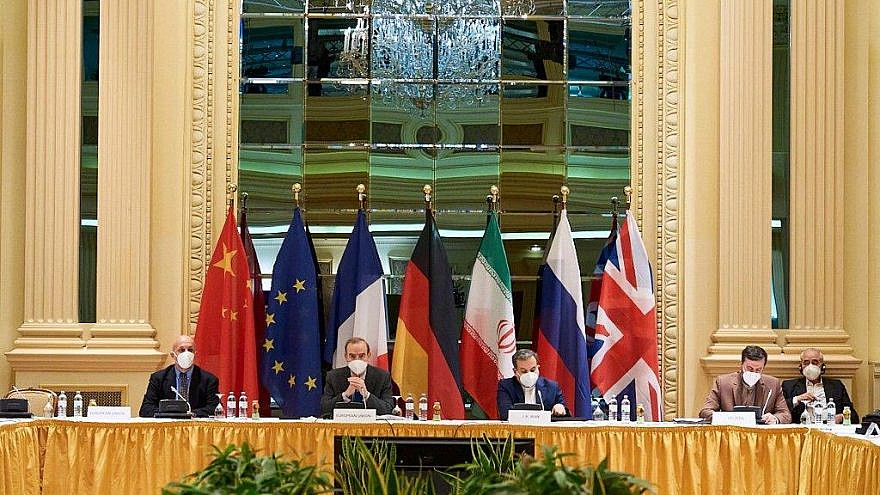A senior U.S. State Department official told reporters that there are a “handful of weeks left” to seal a deal with Iran on a return to the Joint Comprehensive Plan of Action (JCPOA), better known as the Iran nuclear deal.
“After that, it won’t be possible to return to the JCPOA and recapture the benefits of the deal,” said the official, claiming that Iran’s continued progress towards nuclear breakout will soon make it impossible for a return to the parameters of the 2015 original agreement. Negotiators headed back to the capitals for consultations after another round of European-brokered indirect negotiations between Washington and Tehran in Vienna.
Although significant unspecified gaps remain between the U.S. and Iranian positions, the official avenue remains “where we can see a path to a deal if those decisions are made and made quickly.” The official said the sequencing—the order by which each side executes their end of the bargain—will not be an obstacle to a deal, as many experts have long claimed.
“Our preference and our efforts are devoted to returning to the JCPOA. It would advance core U.S. interests and help to depressurize the broader regional crisis,” claimed the official, adding that “no deal means a future that is not hard to divine. Iran would continue the development of its nuclear program at the alarming pace that Iranian leadership has undertaken for some time. It would mean more American pressure—diplomatic, economic and otherwise.”
After Iranian negotiators recently opened the door to possible direct negotiations, the State Department official said such face-to-face communication would be beneficial if the “goal is to reach an understanding quickly and to avoid miscommunication. The optimal way to do that is to take the parties that have the most at stake and have them meet directly. This is not about asking Iran for a favor to have direct talks. Given how little time is left and how critical the decisions are, it would be deeply unfortunate if the opportunity to have a direct conversation was lost. But it’s Iran’s decision,” the official said.
‘It was a catastrophic error to withdraw’
The official laid the blame at the feet of the administration of former U.S. President Donald Trump for withdrawing from the nuclear accord in 2018, saying Iran’s nuclear program has grown largely unchallenged and unwatched since then due to the lack of constraints brought on by a broken deal.
“You can even look to the number of [former] Israeli defense and government officials who have said recently that the withdrawal was a mistake and they regret it. … It was a catastrophic error to withdraw, and the way it was done left us with wholly unsatisfactory tools to deal with it,” according to the official, who said the Biden administration was concerned by the loss of visibility over Iran’s nuclear activity since the regime largely shut out the monitoring program of the International Atomic Energy Agency.
The official addressed the recent departure of the U.S. negotiating team’s deputy, Richard Nephew, who departed the staff, along with two others, amid reported disagreements with lead negotiator Robert Malley over Malley’s reluctance to enforce existing sanctions and to walk away from negotiations. Nephew developed the original web of Iran sanctions and helped to formulate the JCPOA under the Obama administration.
“Richard was and is an exceptional colleague and will do extraordinary work in his new position elsewhere in the State Department. … The (negotiating) team presents a wide range of options and arguments, but at the end of the day, the team implements the policies of the president, secretary of state, the National Security Council and other cabinet members. There weren’t personal differences here. There were policy differences,” said the official.
Issues supplementary to the nuclear deal were also raised. The official said that talks on the release of several American hostages held by Tehran continue on a separate track and that “it’s hard to imagine a return to the JCPOA without the release of those hostages.”


























